THCA buds, the non-psychoactive precursor to THC, are emerging as a natural alternative for stress relief, with potential benefits for mood regulation and stress responses by interacting with the endocannabinoid system. These buds have shown anxiolytic properties, anti-inflammatory effects, and analgesic qualities, which could be particularly helpful in managing symptoms like anxiety, tension, and pain associated with stress. Preliminary studies suggest that THCA engages with CB1 receptors in the brain to provide a calming effect without altering cognitive function. As research continues, THCA buds are being recognized for their potential therapeutic applications beyond stress management, including neuroprotection and anti-inflammatory benefits. It's important to consult healthcare professionals before using THCA buds, considering individual differences in sensitivity, safety guidelines for specific populations like those under 21 or pregnant/breastfeeding women, and potential side effects like dry mouth and eyes. Dosage should be approached with caution, starting at a low dose and adjusting according to personal response, with the understanding that effects can vary based on factors like weight and metabolism. Incorporating THCA buds into a wellness routine may offer significant stress relief when used responsibly and in harmony with other wellness practices.
Exploring the multifaceted effects of THCA buds, this article sheds light on their potential in alleviating stress. From the science backing its impact on anxiety and mood to practical advice on dosage and integration into a wellness routine, we delve into the therapeutic properties of raw cannabis, emphasizing both its benefits and side effects. Understanding the nuances of THCA flower consumption is key to harnessing its stress-relieving effects safely and effectively. Join us as we unravel the potency of THCA buds for stress relief.
- Unraveling the Potency of THCA Buds in Stress Relief
- The Science Behind THCA and Its Effects on Anxiety and Mood
- Exploring the Therapeutic Properties of Raw Cannabis: A Closer Look at THCA
- Understanding the Side Effects and Safety Considerations of THCA Flower Consumption
- Navigating Dosage: Finding Balance with THCA Buds for Stress Management
- Integrating THCA Flower into Your Wellness Routine for Optimal Stress Relief
Unraveling the Potency of THCA Buds in Stress Relief
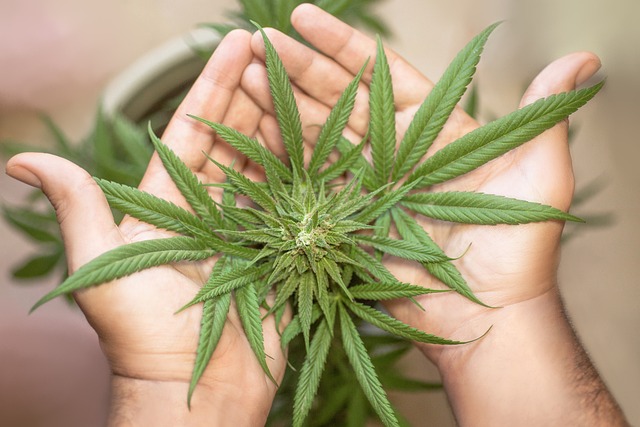
THCA buds, which are the raw, unprocessed form of tetrahydrocannabinolic acid, have garnered attention for their potential role in stress relief. Unlike its psychoactive counterpart THC, THCA is non-psychoactive, allowing users to experience the therapeutic benefits without the ‘high’ effect. Studies suggest that THCA buds may interact with the body’s endocannabinoid system, which plays a crucial role in regulating mood and stress responses. Preliminary research indicates that compounds found in THCA buds can influence the body’s reaction to stress by promoting neuroprotection and modulating the release of cortisol, often referred to as the stress hormone. This modulation could potentially alleviate symptoms associated with stress, such as anxiety and tension, offering a natural alternative for those seeking relief from the pressures of daily life.
Furthermore, THCA buds for stress relief are being explored for their anti-inflammatory and analgesic properties, which can further contribute to stress reduction. The anti-inflammatory effects may help in managing physical symptoms that often accompany mental stress, such as muscle soreness or headaches. In addition, the analgesic qualities can provide comfort from chronic pain, allowing individuals to focus less on their discomfort and more on coping with the psychological demands of stress. As interest in cannabinoids grows, ongoing research into the efficacy and mechanisms of THCA buds continues to shed light on their potential as a natural remedy for stress relief. Users interested in exploring this alternative therapy should consult with healthcare professionals to ensure safe and effective use.
The Science Behind THCA and Its Effects on Anxiety and Mood
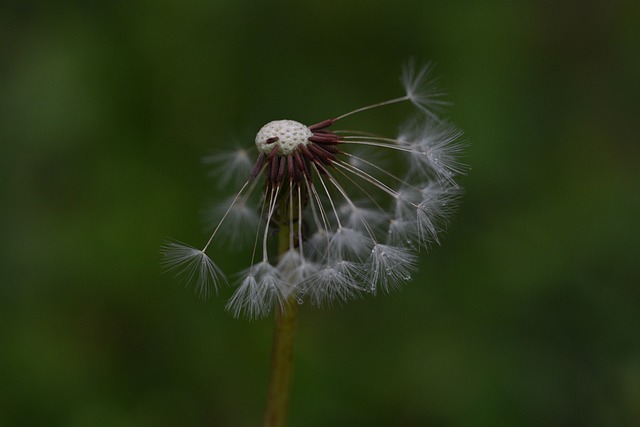
Cannabis research has increasingly focused on the therapeutic properties of tetrahydrocannabinolic acid (THCA), which is the raw, non-psychoactive form of THC found in fresh cannabis flowers and extracts. THCA is gaining attention for its potential anxiety-relieving effects without the psychoactive ‘high’ associated with its decarboxylated counterpart, THC. Studies suggest that THCA interacts with the body’s endocannabinoid system, which plays a significant role in regulating mood and stress responses. By binding to cannabinoid receptors within the brain, particularly the CB1 receptors, THCA may help modulate neurotransmitter release, leading to a calming effect without altering one’s cognitive state. This makes THCA buds a promising candidate for those seeking stress relief and anxiety management during the day or in situations where altered perception is not desired.
Furthermore, the anxiolytic potential of THCA has been supported by various preclinical studies. Animal models have demonstrated that THCA can reduce anxiety-like behavior, indicating its efficacy as a natural remedy for stress and anxiety. The precise molecular mechanisms behind these effects are still being unraveled, but the evidence points towards a promising direction for those looking for alternative methods to manage their mood without the mind-altering effects of THC. As such, THCA buds are increasingly being explored as a natural option for stress relief and mood support, offering a potentially valuable addition to holistic health practices.
Exploring the Therapeutic Properties of Raw Cannabis: A Closer Look at THCA
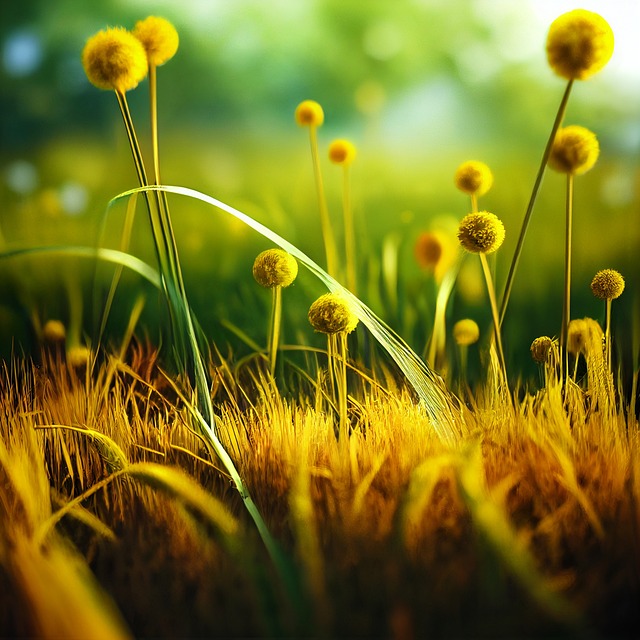
Raw cannabis, specifically in its THCA (Tetrahydrocannabinolic Acid) form, has garnered attention for its potential therapeutic properties. THCA is the precursor to THC (Tetrahydrocannabinol), the psychoactive component of cannabis, but unlike THC, THCA is non-psychoactive. This unique characteristic allows users to experience the medicinal benefits without the high typically associated with cannabis consumption. One of the most notable applications of THCA is for stress relief. Users report that THCA buds can help alleviate symptoms of anxiety and stress, making them a popular choice among those seeking natural ways to manage these conditions. The way THCA interacts with the body’s endocannabinoid system suggests it may influence mood regulation centers in the brain, offering a calming effect that can be beneficial for managing everyday stressors. Additionally, THCA is being studied for its anti-inflammatory and neuroprotective effects, which could potentially aid in various health conditions beyond stress relief, including neurodegenerative diseases and chronic pain. As research continues to evolve, the therapeutic potential of THCA buds becomes increasingly apparent, offering a promising avenue for those seeking natural alternatives for wellness and stress management.
Understanding the Side Effects and Safety Considerations of THCA Flower Consumption
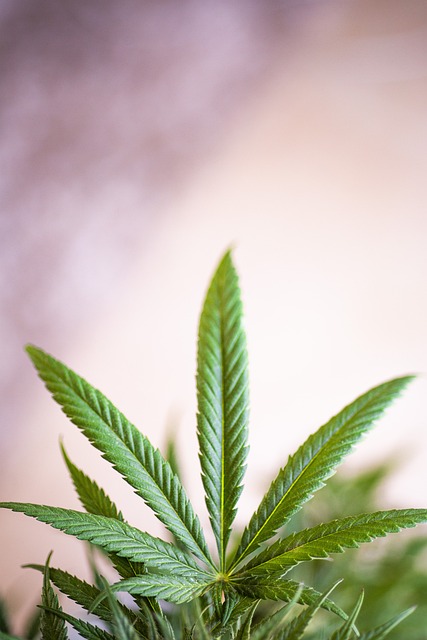
THCA, or tetrahydrocannabinolic acid, is a natural compound found in the cannabis plant that has garnered attention for its potential therapeutic properties, particularly in aiding stress relief. While THCA itself is non-psychoactive, it is the precursor to THC (tetrahydrocannabinol), the primary psychoactive component of cannabis. Consuming THCA buds has been reported to offer various health benefits without the intoxicating effects associated with THC. However, understanding the side effects and safety considerations of THCA flower consumption is crucial for anyone looking to incorporate it into their wellness routine.
Common side effects associated with THCA flower can include mild psychoactive effects if the THCA has been decarboxylated into THC, dry mouth and eyes, and possible drowsiness. These side effects are typically mild and may be alleviated by staying hydrated and using the product as directed. It’s also worth noting that individual experiences with THCA can vary, and some users may be more sensitive to its effects. Safety considerations advise against consumption for individuals under the age of 21 or anyone who is pregnant or breastfeeding, as there is insufficient evidence on the safety of cannabinoids during these periods. Additionally, because THCA can interact with certain medications, it is advisable to consult with a healthcare professional before use, particularly if taking other drugs or dealing with pre-existing health conditions.
Individuals seeking THCA buds for stress relief should approach its use responsibly and be aware of their body’s response to the compound. While anecdotal evidence suggests beneficial effects on stress and anxiety, the scientific community continues to explore the full scope of THCA’s potential benefits and risks. As with any wellness supplement, it is essential to start with a low dose to gauge individual sensitivity and proceed with caution.
Navigating Dosage: Finding Balance with THCA Buds for Stress Management

Navigating the optimal dosage of THCA buds for stress relief requires careful consideration and a personalized approach, as individual sensitivities to cannabinoids can vary significantly. THCA buds, which are the raw form of THC before it is decarboxylated into the psychoactive THC, have been reported to possess anxiolytic properties, making them a potential natural remedy for managing stress. Users interested in utilizing THCA buds for their stress relief benefits should start with a low dose to gauge their body’s response. This initial dosage can be incrementally increased based on personal tolerance and the desired effects. It is generally advisable to consume THCA buds orally, as smoking can lead to quicker psychoactive effects that might exacerbate stress rather than alleviate it. The effects of THCA can take longer to manifest compared to its heated counterpart, THC, so patience and consistency are key when experimenting with dosage.
To effectively use THCA buds for stress management, individuals should pay attention to how their body reacts at different dosages. Factors such as weight, metabolism, and personal physiology can all influence the effectiveness of THCA. A common recommendation is to begin with a small amount, around 5-10 milligrams of THCA, and allow several hours for the full effects to be felt before considering an increase. It’s important to approach this process with an understanding that finding balance may require some experimentation. Users should also consider the time of day they are consuming THCA buds, as stress relief might be more effectively achieved when consumed in a relaxed setting during times of lower activity or at the end of the day. As always, it is essential to adhere to local laws and regulations regarding the use of cannabis products and to consult with a healthcare professional before integrating THCA buds into a stress management regimen.
Integrating THCA Flower into Your Wellness Routine for Optimal Stress Relief
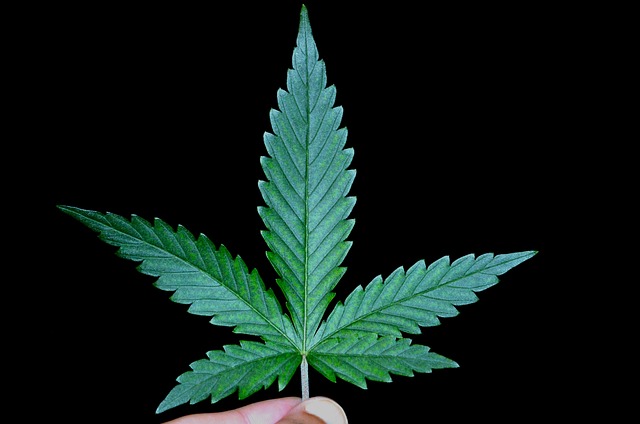
Incorporating THCA flower, or tetrahydrocannabinolic acid buds, into a wellness routine can offer a natural and effective approach to stress relief. THCA, the raw form of THC found in cannabis plants, has been studied for its potential therapeutic properties, which may include anxiety reduction and pain management. For those seeking a holistic method to manage daily stressors, THCA buds can be a viable option due to their interaction with the endocannabinoid system, a complex network that contributes to maintaining homeostasis within the body. When integrating these buds into your routine, it’s important to consider dosage and strain selection, as different strains can influence effects. Users often report feelings of calmness and clarity when using THCA flower for stress relief, making it a popular choice among individuals looking to decompress after a demanding day or to support overall mental well-being.
When exploring the use of THCA buds for stress relief, it’s crucial to approach consumption with an understanding of your body’s response to cannabinoids. Starting with small doses and observing their effects over time can help in tailoring a routine that aligns with your individual needs. Additionally, combining THCA flower with other wellness practices, such as mindfulness exercises or regular physical activity, can amplify its benefits. As with any supplement, consulting with a healthcare provider before adding THCA buds to your wellness regimen is advisable, especially if you have underlying health conditions or are taking other medications. By incorporating THCA flower in a mindful and measured way, it can be a potent ally in your pursuit of stress relief and overall well-being.
THCA buds have emerged as a promising natural alternative for those seeking stress relief without the psychoactive effects of traditional cannabis products. This article has delved into the therapeutic properties of THCA, revealing its potential to alleviate anxiety and improve mood. While incorporating THCA buds into a wellness routine can offer significant benefits, it is crucial to approach their consumption with caution, as with any substance. Understanding the side effects and safety considerations is key to maximizing the advantages while minimizing risks. As with any health-related practice, individual responses may vary, and personal factors should be taken into account. In conclusion, THCA buds for stress relief represent a compelling option within the cannabis spectrum, provided users adhere to appropriate dosing and consider their unique physiology and needs. Always consult with healthcare professionals when integrating new wellness practices into your routine.
